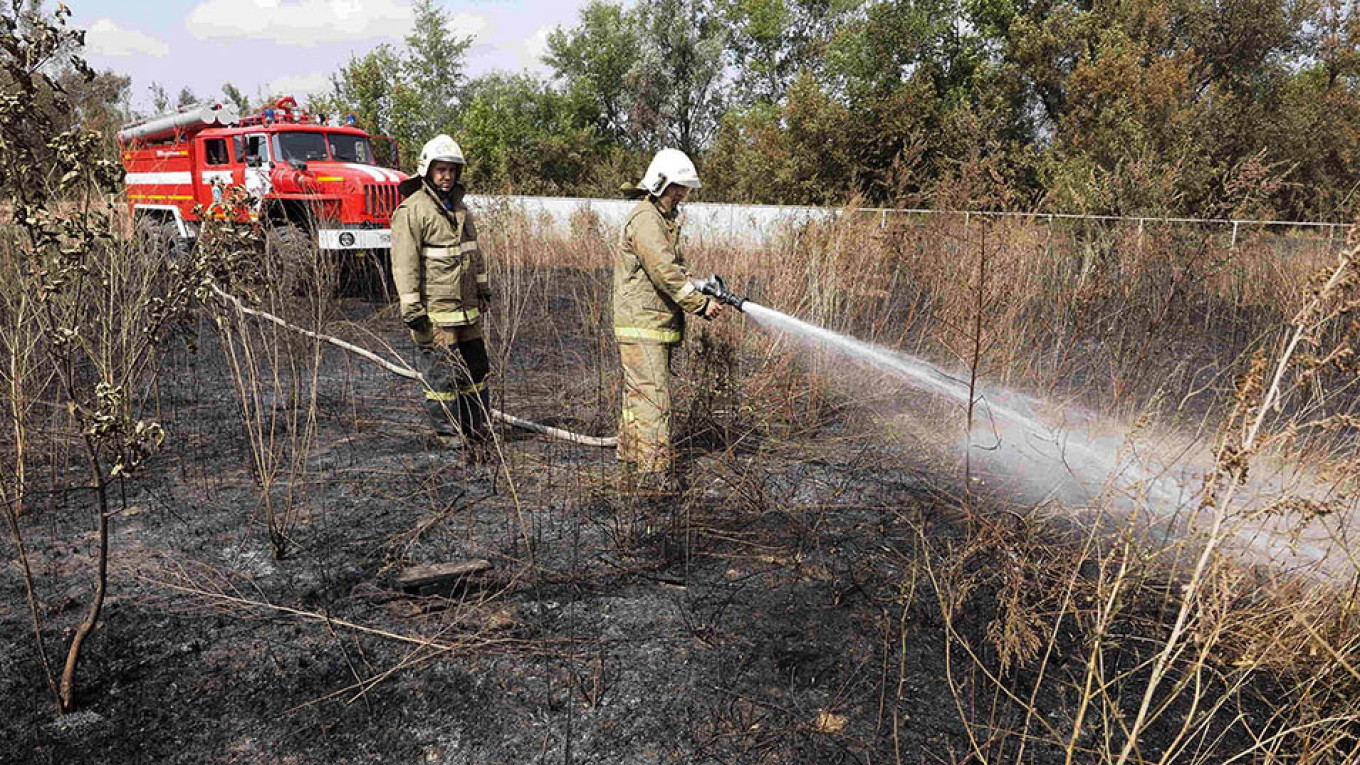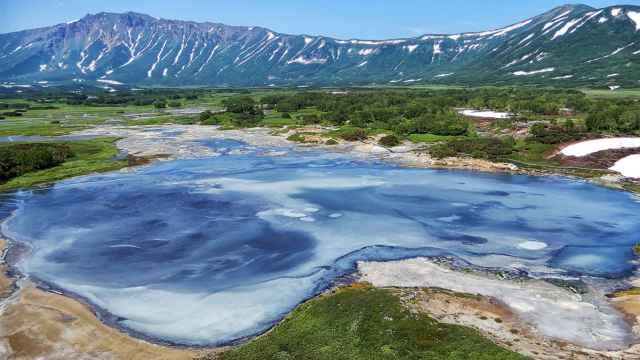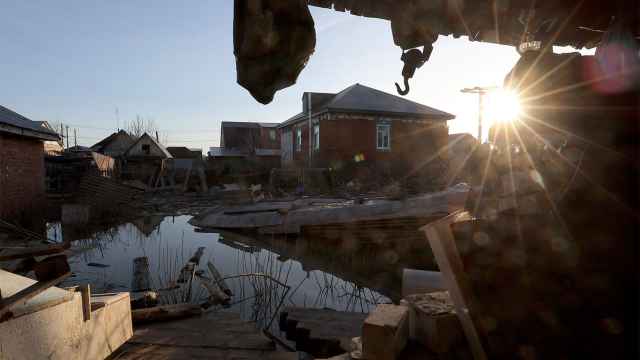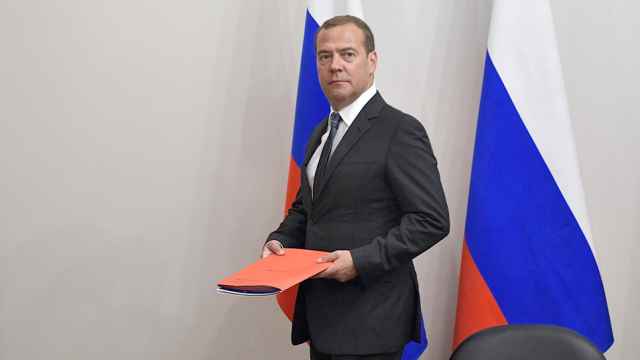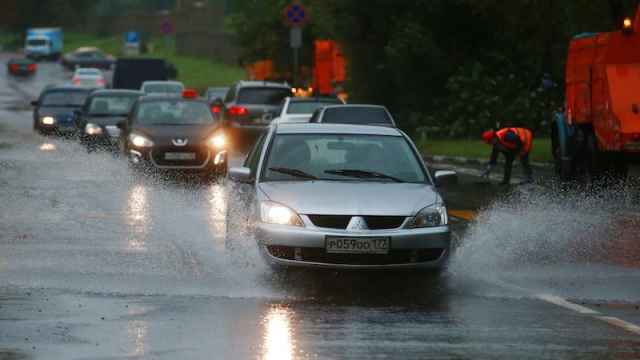Russia’s law enforcement authorities will look into whether arson was a factor behind the raging wildfires across Siberia, Prime Minister Dmitry Medvedev said Thursday as emergency officials decried insufficient firefighting efforts.
The vast wildfires that have engulfed forest areas the size of Belgium were initially thought to be triggered by a combination of dry lightning and human activity. The wildfires have gained worldwide attention, with U.S. President Donald Trump discussing them by phone with Russian President Vladimir Putin.
Medvedev gave investigators, prosecutors and police a deadline of Nov. 1 to determine if the fires were deliberately started to hide illegal logging activity, Interfax reported.
Russia’s Emergency Situations Ministry, meanwhile, said the wildfires had spread to almost 3 million hectares because of “insufficient measures to extinguish fires,” the state-run TASS news agency reported. Residents and environmentalists had urged officials to step up firefighting efforts, while regional officials have claimed that the efforts would be economically unviable.
Putin on Wednesday ordered the army to help firefighters battle wildfires in Siberia but environmentalists said the move was unlikely to produce a quick breakthrough.
The Kremlin said Putin had been briefed and had ordered the Defense Ministry to help put out the fires and also to permanently station a firefighting unit in Siberia's Irkutsk region, one of the affected areas, until further notice.
The Defense Ministry was sending 10 Ilyushin-76 planes and 10 transport helicopters to the Siberian region of Krasnoyarsk equipped with firefighting equipment following the order from the Kremlin, the state-run RIA News agency reported.
Reuters contributed reporting to this article.
A Message from The Moscow Times:
Dear readers,
We are facing unprecedented challenges. Russia's Prosecutor General's Office has designated The Moscow Times as an "undesirable" organization, criminalizing our work and putting our staff at risk of prosecution. This follows our earlier unjust labeling as a "foreign agent."
These actions are direct attempts to silence independent journalism in Russia. The authorities claim our work "discredits the decisions of the Russian leadership." We see things differently: we strive to provide accurate, unbiased reporting on Russia.
We, the journalists of The Moscow Times, refuse to be silenced. But to continue our work, we need your help.
Your support, no matter how small, makes a world of difference. If you can, please support us monthly starting from just $2. It's quick to set up, and every contribution makes a significant impact.
By supporting The Moscow Times, you're defending open, independent journalism in the face of repression. Thank you for standing with us.
Remind me later.


